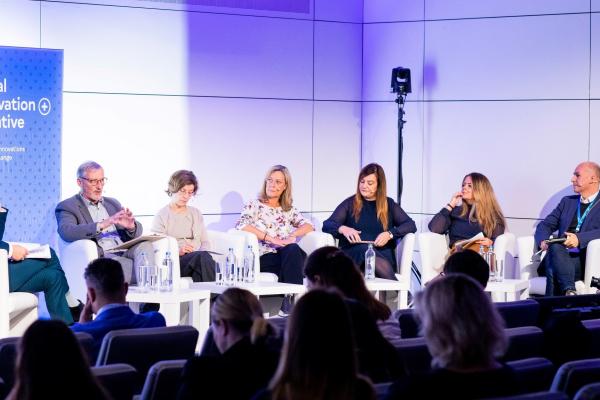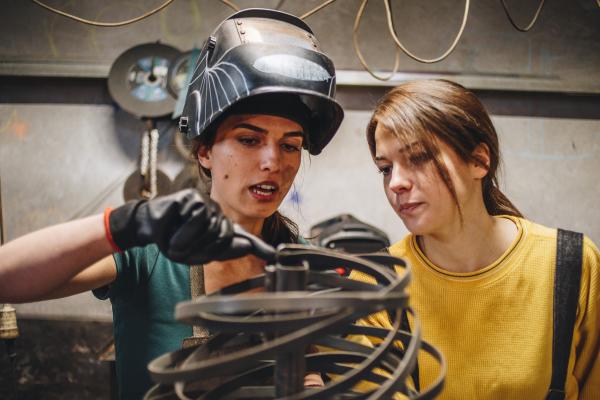Problem addressed
- High levels of criminal recidivism among young inmates at the Leiria Prison Establishment – Jovens (EPL-J);
- difficulties in the professional integration of prisoners into the job market;
- lack of access to culture by inmates.
Innovative solution
On a global level, this project aims to minimize stigma towards inmates and significantly contribute to the success of their integration, after serving their sentences. At a more individual level, the project aims to provide inmates with socially and communally supported and structured exits, as well as contributing significantly to improving their behavior in prison, reducing the sanctions to which they are subject in the case of misconduct. The big change expected is the increase in the success rate of reintegration processes for young prisoners.
Key results and benefits
The social intervention through the artistic languages can represent in the life of each subject a great socio-educational significance, contributing to reinforce numerous personal, social, affective, emotional and relational skills.
The social reintegration of young inmates presents a great challenge for professionals, since the period of detention can indeed allow the individual a period of reflection, there are also ties (of friendship, family...) that fall apart, and that, in most cases, it is important to reconcile.
The project "Opera in Prison" searched, through music, theater and dance to promote a strategy of socio-educational intervention that catalyses a socially framed life. This project, funded by the Calouste Gulbenkian Foundation, took place in the Leiria Prison (youth), having been promoted by Sociedade Artística Musical dos Pousos (SAMP). Since the beginning of 2014, a group of 50 inmates.
To understand the impact of this project on the proscess of social reintegbration of young inmates, a research methodology was adopted based on interviews with the various stakholders in the project.
The results presented evidenced the role that artistic languages have played in the lives of young inmates and their families and the way in which they have contributed to a more effective social reintegration.
Keywords: Artistic languages, Young inmates, Social reintegration.
Potential for mainstreaming
It's being able to sing opera for the other inmates and for others, who are out there, beyond the walls. Freedom is being part of a common goal and gaining the wings of freedom by singing arias written by the genius of Mozart that, only apparently, seem so far from the sharp rhymes of rap, afrobeat and hip-hop. Assemble, adapt, stage and present a Mozart opera every three years, with the participation of inmates, technical staff, the prison's management and administration, prison guards, an orchestra and professional singers, with the support of families and the local community , seems to be an ambitious goal, especially because this action does not end within the walls, but contains a dimension of reintegration and revitalization of social bonds, put on hold with the sentence, in addition to the acquisition of resilience, capacity for collective work, motivation and change of behavior.




